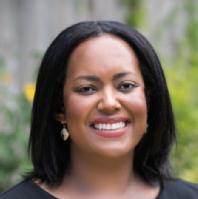Dr Natalya Din-Kariuki
 Associate Professor
Associate Professor
Email: Natalya dot Din-Kariuki at warwick dot ac dot uk
Humanities Building
University Road
University of Warwick
Coventry CV4 7AL
About
I teach in the Department of English and Comparative Literary Studies and am also affiliated with the Centre for the Study of the Renaissance and the Global History and Culture CentreLink opens in a new window. I studied at the University of Oxford, and completed my doctoral research there in 2018 with the support of the Rhodes Scholarship. I have held research fellowships at the University of Leeds,Link opens in a new window the Folger Institute, the Newberry Library, and the Institute for Advanced Studies in the Humanities at the University of Edinburgh. Before coming to Warwick, I taught at Worcester College, Oxford.
Research interests
My research examines the literatures of travel and migration, rhetoric and poetics, and postcolonial and decolonial thought. At present, I am completing my first book project, Peregrine Words: Writing about Travel in the Early Modern World. The book argues that early modern English travellers drew on the habits and techniques of classical rhetoric to understand the economic implications of their travels, and, by extension, their place within the structures of an emergent capitalism. Material emerging from this project appears in my chapter "'Strange accidents': navigating conflict in Sir Thomas Smithes voiage and entertainment in Rushia (1605)", in Travel and Conflict in the Early Modern World ed. Gábor Gelléri and Rachel Willie (2020), in my essayLink opens in a new window "Reading the Ottoman Empire: Intertextuality and Experience in Henry Blount's Voyage into the Levant (1636)" in The Review of English Studies, and in an articleLink opens in a new window on Thomas Coryate for Textual Practice.
I have also written about early modern religious prose, and published an article Link opens in a new windowon the preaching of the English clergyman Lancelot Andrewes in The Huntington Library Quarterly.
With Subha Mukherji and Rowan Williams, I edited a volume entitled Crossings: Migrant Knowledges, Migrant Forms, currently in press at punctum books. This volume emerges from an event we co-convened (with Carla Suthren) at the University of Cambridge that brought together academics, artists, and activists to explore alternative ways of thinking and knowing about migration – of people, things, and ideas – rooted in the urgency of contemporary experience. The book is available in both print and open access forms here, and there is a documentary of the event here.
I enjoy finding opportunities to collaborate with colleagues and students internationally. In May 2025, I will be leading a workshop at the Newberry Library in Chicago entitled "Travel Studies: Theories, Methods, Materials". Find out more about the workshop here.
Teaching and supervision
In 2024-5, I am teaching on the modules Medieval to Renaissance English LiteratureLink opens in a new window and England and the Islamic World, 1550-1660, as well as giving lectures on Shakespeare and Selected Dramatists of His Time Link opens in a new windowand Literature in TheoryLink opens in a new window.
I would be very pleased to hear from potential graduate students interested in pursuing research in any of my areas of specialism.
Office hours
In Term 1, my office hours are:
Monday 2-3pm, Tuesday 3-4pm.
Please email me in advance to set up a meeting.
If you would like to meet via Microsoft Teams, please contact me to sign up for a call.
Microsoft Teams is provided free to all members of the University. To download it, and for guidance, please see: Information on TeamsLink opens in a new window
Teaching
EN121 Medieval to Renaissance English Literature
EN2B5/EN3B5: Seventeenth-Century Literature
